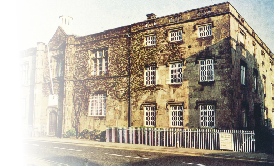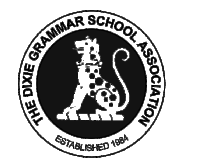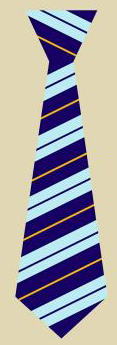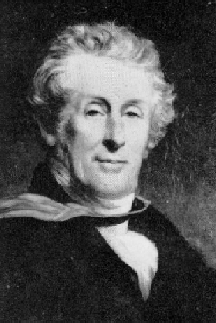





He studied geology and botany, and his knowledge of Greek, Roman, and English coins, of which he had a large collection, was considerable.
He was ordained in Gloucester cathedral in August 1804 to the curacy of Hartpury, and after receiving priest's orders in September 1805, was, the following month appointed as professor of classics and history in the Royal Military College, then recently established at Great Marlow, Buckinghamshire. He moved with the college to Sandhurst in October 1812.
Resigning this appointment in 1822, he went to Britwell, near Burnham, where he prepared
pupils for the universities, and served the curacy of Burnham until 1829, when he
accepted the head-
Unusually Evans was one of the few headmasters of the Dixie Grammar School to be appointed other than by the local Dixie Baronets. The Bishop of Lincoln, John Kaye, appointed Evans, since in 1829 the 8th Baronet was only a child of 13. The schools' commissioners reported Evans' tenure as one of the most successful in the school's history.
While resident at the Dixie Grammar School he held successively the curacies of Bosworth, Carlton, and Cadeby between 1829 and 1841. From his clerical profession he never received more than £100 a year and it was as a schoolmaster that he was much more successful.
In June 1819 Arthur married Anne, third daughter of Captain Thomas Dickinson, R.N.,
of Bramblebury, near Woolwich, by whom he had six children. She died 10 May 1883,
in her ninety-
Dr. Evans wrote about twenty books, many of which are considered to be so important
that copies can be obtained today from several publishers. Some of them can even
be read “on-
Of his six children, let’s discuss the importance of two, John and Sebastian. John
was born at Britwell Court in Buckinghamshire in1823. He was all set for an academic
career and about to enter Brasenose College, Oxford, when suddenly he was sent to
work for his uncle, John Dickinson, in the paper-
Evans House is named after the Rev. Arthur Benoni Evans D.D., a British writer. He was born on 25th March, 1781, at Compton Beauchamp, in what was at the time the county of Berkshire, but is now in Oxfordshire. His father, the Rev. Lewis Evans, the vicar of Froxfield, in Wiltshire, was a well known astronomer, and for many years held the professorship of mathematics at the Royal Military Academy, Woolwich. He married Ann, eldest daughter of Thomas Norman.
Their second son, Arthur Benoni, received his education at the college school, Gloucester,
of which his uncle and namesake was head-
In addition to his knowledge of classical languages, Evans became versed in Hebrew, French, Italian, Spanish, German, and Icelandic. He had a musical talent as well, and played several instruments. As an artist he sketched in pencil, crayon, and sepia. His cattle drawings were of particular merit.